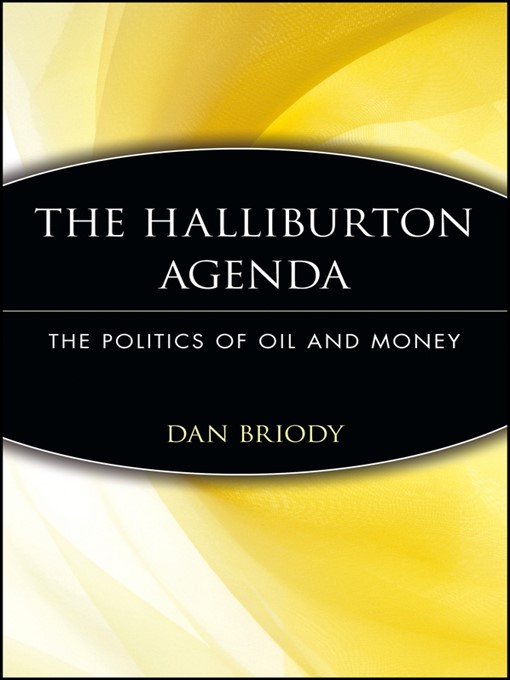
The Halliburton Agenda
The Politics of Oil and Money
کتاب های مرتبط
- اطلاعات
- نقد و بررسی
- دیدگاه کاربران
نقد و بررسی

May 3, 2004
Following hard on the heels of The Iron Triangle
, an examination of international consultants the Carlyle Group, Briody turns his considerable investigative skills to the rise of the Halliburton Corp., its subsidiary Kellogg, Brown and Root and the transformation of the U.S. military establishment. With a blunt matter-of-fact tone, Briody describes the rise of the two companies from the dusty oil fields of west Texas to the marbled corridors of power in Washington, D.C. Briody contends that Halliburton and KBR have literally bought politicians, manipulated the contracting process and ridden the current wave of small wars to record profits. Small, detailed moments of intense private pressure and unscrupulous backroom deal-making dominate this story. While Briody seethes with indignation, there is a grudging respect for the skill with which the executives and politicians ply their trade and a bitter resignation at the reality of the ways of government contracting. Central to the Pentagon's post–Cold War strategy is outsourcing nonmilitary tasks to private contractors. One of the chief architects of this plan was Dick Cheney, defense secretary for the first President Bush. Briody argues that with Cheney now vice-president and Halliburton awarded a huge no-bid contract to reconstruct Iraq's oil fields, public outrage has grown. As the controversy simmers, Briody raises an important question: with Americans and Iraqis dying by the day, have military matters become so efficient and profitable for companies like Halliburton that war itself is easier to wage? At times the book is repetitive and has the feel of being rushed to press, but this urgency lends the book a certain gravity. Briody has his own agenda—brilliantly illuminating the increasingly crucial nexus of public need, private profit and war making. Agent, Daniel Greenberg.

May 15, 2004
When Dick Cheney was hired as CEO of Halliburton in 1995, he had never even held a management position in the business world. Clearly, he was hired because of his political influence and extensive contacts in Washington. Briody demonstrates that the company and its subsidiary KBR have a long history of using political connections to win government contracts, dating back to connections with then-congressman Lyndon Johnson in the 1940s. From massive military construction in Vietnam to the cleanup of the Gulf War to Somalia, Bosnia, and the current conflict in Iraq, Halliburton has been the beneficiary of lucrative multibillion "no-bid" contracts that have resulted in the massive overcharging of the American taxpayer. The U.S. military's dependence on this company has taken privatization to a new level, and meanwhile it is under investigation for accounting practices, bribes, and price gouging. Although Cheney has not left any evidence that he influenced the rewarding of contracts to Halliburton as vice president, Briody's timely expose will surely put the relationship under close scrutiny during the coming election campaign.(Reprinted with permission of Booklist, copyright 2004, American Library Association.)

























دیدگاه کاربران